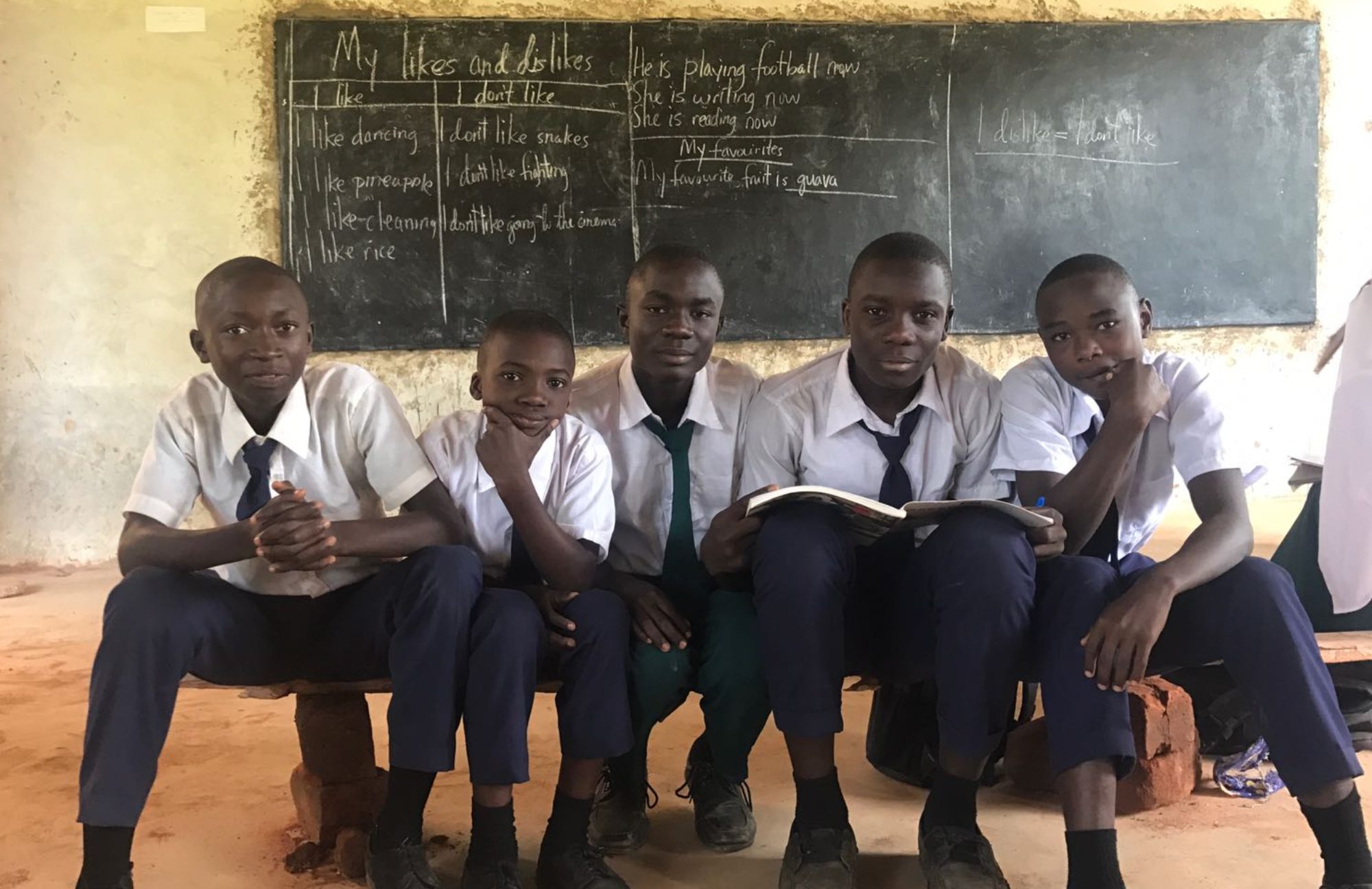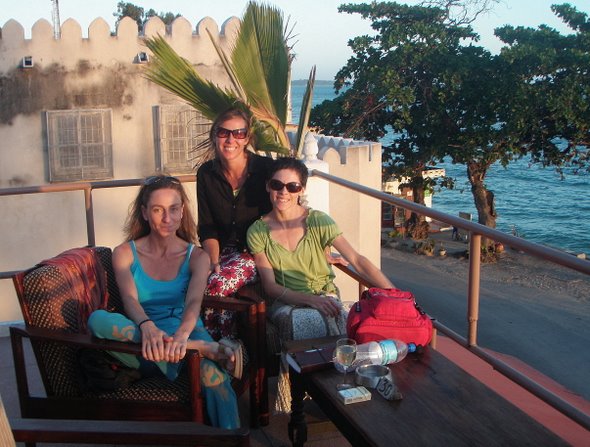I asked Laura and Hadley some questions on the veranda of our hotel the night before they left. Emotions soared as they thought back on some of their experiences.
You’ve been in the city, the beach, the small town and the village. Which do you prefer and why?
L: I don’t like the big city at all. Zanzibar is good for tourism. I felt relaxed there and wanted to go to the beach. I liked the atmosphere. It’s touristy so if you’re looking for that, it’s good. If you’re looking for life experience and something deeper, then being here(in Kigoma) is the thing.
H: I would say that Dar was not my favorite place, but I’m glad that I experienced it because it let me see kind of the sad state of affairs of the reality of things here. That people would be coming from villages to Dar looking for a better life only to find more desperation is unfortunate. Zanzibar was a nice touristy respite, but it did feel touristy and didn’t feel as real. And now that we’re in the villages the landscape is incredibly beautiful and while the people are probably just as poor as they were in Dar, there is more warmth and there is more friendliness. It makes me sad that people would leave the villages where there is still warmth and love to go to a place like Dar where the desperation is that much more evident. Overall, I would say that I’m enjoying my experience in Kigoma and surrounding villages the most because it feels the most real to me and I am enjoying connecting with the people on a more personal basis.
What are your impressions of the people in Tanzania?
H: Overall they’re incredibly warm people and beautiful. But they are very much in need. In a place like Dar, the constant pressure to give money can be overwhelming. Here in Kigoma they are still very much in need but they’re much more open and they have so much love and fun in their hearts. They love being your friend. It’s so fun to see how much they love Rai. I understand why Rai wants to keep coming back because the friendships you form here are everlasting.
L: Dar is a big city and as such it’s more impersonal. People there just approach you to ask for something. It’s not a real connection. They know you are there passing by and they don’t bother to get to know you. Zanzibar – the experience with the woman who runs the hotel was nice. If you’re a tourist in the city, you’re not going to get to know anyone unless you’re there for a while. But at the hotel, it was nice to spend time with the owner and her baby and the guy helping us with the cat. They are warm … shy, but warm. Here in the villages, even if they are in need, and they ask for things, they offer you what they have. Which is very little. To see the eagerness they have to learn, meet people, know about others’ lives and learn from your life to make theirs better, it’s just great.
What do you think about opportunities here?
L: Very little. Too many people wanting to try and not so many opportunities for them. There is also a big difference in opportunity between that for men and women.
H: I agree with Laura. Very little opportunity. They want to learn. They want a better life and they want better prospects for their country, but it’s so difficult for them. They have so many obstacles. In contrast to American children, they desire so much to learn… they try so hard to learn and so value education; if only American children could see how lucky they are.
What will you remember most? Your favorite memory?
H: I would have to say, visiting Lucas’ family and seeing how little they have and how much they want to give. Stan and Maiko ( Lucas’ neighbor and brother) wanted to know why the US is so strong and so powerful and TZ is not. I entered into a discussion with them about our government, about how a key feature in our government includes our freedoms and our government’s ability to regulate corporations such that our country as a whole is strengthened by our resources, whereas here resources are being stripped, leaving the people with no profit from the resources. Sometimes, I thought maybe I was losing them in the conversation but they continued asking challenging follow-up questions, wanting more knowledge. I could see that if people like this who have so little and are clearly so bright could receive the education that they desire, there could be hope that TZ and all of Africa could be stronger and less impoverished. So while I was given hope by talking with them, it also made me sad that they continue to be held back by corruption and the lack of money for the education sector.
L: The two young guys asking those questions was amazing, but also seeing the children in the village – how well they speak English compared to our children in Spain who have so many more opportunities and they don’t take advantage of them. (Laura pauses and tears up). It’s so much… it’s not just one thing.
What made you feel uncomfortable or maybe disillusioned?
L: We were waiting for the dala dala to go back to town. When it stopped there was no room to get in. I don’t know how it happened but they made four women get out so we could fit in. We thought they were making them stay to wait for another bus to come. That would have been really bad. We wouldn’t have gotten into the bus if they had done that. Still – being able to sit down where they had been sitting was bad. Then after a while, I asked a girl to sit next to me and Lucas – who is a very nice guy – educated and what not – asked her to get up. I didn’t like that at all. I don’t like the feeling that maybe they think that we are superior because we come from another country. I just hate that because we are all the same. It just pissed me off so bad and it almost ruined my experience of the whole day. I thought, after such a great day, it can’t end like this – please! Hopefully by me asking the girl to sit by me, she knew I saw us as equal.
What would be your favorite story to tell about this safari of yours?
L: Playing with Felipo’s daughter was great. Even though we couldn’t say much to each other, we communicated.
H: Meeting Hindu. I love seeing all the children being educated, but especially knowing that it’s so important to educate women. Although she was initially so shy we came to find out that she is very smart and knows English quite well. Listening to her read from the text in English – I was blown away. There were some big words in there. Even though she was so shy, she wanted to keep reading. She has a hard life – she lost her dad two years ago, she just lost her brother this year. And yet she is pushing forward with her education. It gives me some hope for the women here. She is an incredible young women and it gave me hope.
L: She asked us when we were coming back to see her again, and that about broke my heart. (Laura and Hadley are both crying now!)

